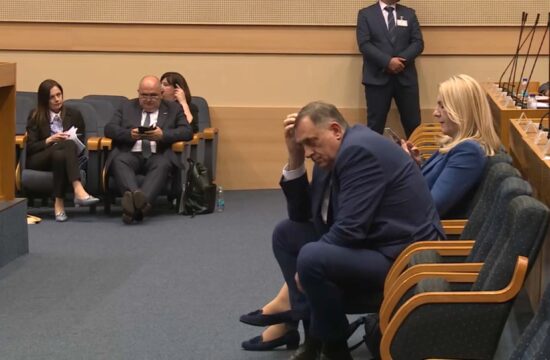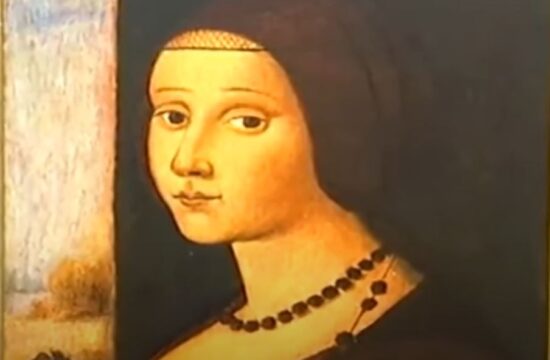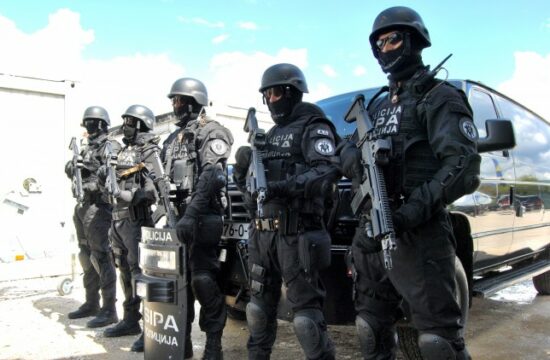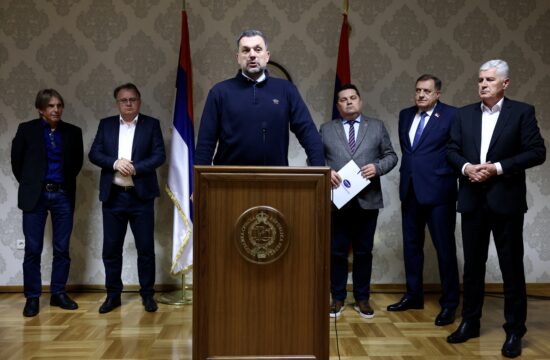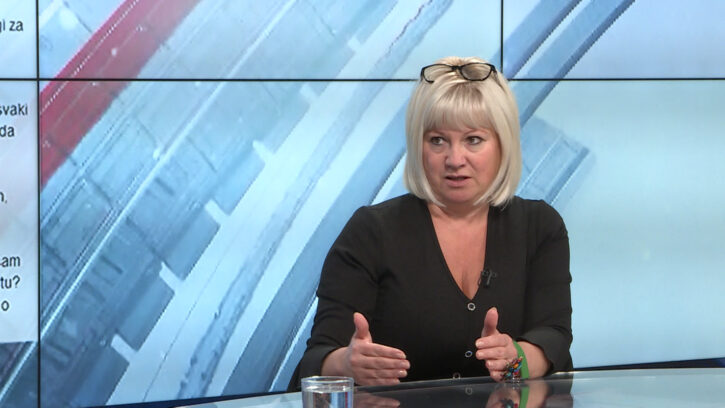
In order for Bosnia to become a civic country, its Constitution must change, the head of the Centre for Cultivating Dialogue, Sanja Vlaisavljevic, told N1 on Thursday.
The Constitution of Bosnia and Herzegovina, which is the Annexe IV of the 1995 Dayton Peace Agreement which ended the war in the country, foresees a power-sharing system between the three majority ethnic groups, Bosniaks, Bosnian Croats and Bosnian Serbs.
The Presidency of Bosnia is composed of three members, each representing one of the three ‘constituent’ peoples, and decisions are made with a consensus between them.
According to Vlaisavljevic, Bosnia’s political system is supposed to be shaped according to two concepts which contradict each other.
“One of them refers to the spirit of the Dayton Peace Agreement and the Constitution of Bosnia and Herzegovina which speaks about the constitutionality of the peoples (ethnic groups). The other concept is opposed to the first, and it is the ideology of citizenship which is the ideal model and it would be great if Bosnia could achieve that. But that cannot be achieved with populism,” she said.
In order for Bosnia to be a civic country, “the words and the spirit” of the Constitution must change, she said.
“Citizens would like to see Bosnia and Herzegovina implement the principles of other countries, including the existence of only one president. But wishes and wants are one thing, and political reality is another,” she said. “A lot of steps are needed in order to establish the Bosnian identity, and that cannot be achieved with empty rhetoric.”
Vlaisavljevic commented on the burning issue of the election of Zeljko Komsic into the Presidency for the post of its Bosnian Croat member.
Bosnia is composed of two territorial and political semi-autonomous entities, the Bosnian Serb-majority Republika Srpska (RS) and the Federation (FBiH), shared by Croats and Bosniaks. While the Serb Presidency member is elected from the RS, the Bosniak and Croat members are elected in the Federation.
However, since there are many more Bosniaks than Croats in the Federation, Croat nationalist parties have been complaining that Bosniaks are able to elect the Bosnian Croat Presidency member. They said that this has already happened twice before, and that it happened again in the General Election on Sunday, when Komsic, who is the leader of the left-leaning Democratic Front (DF) and who they say is not a legitimate representative of Bosnian Croats, was elected.
Vlaisavljevic told N1 that Bosnia is a state of all of its constituent peoples and pointed out that Dragan Covic, the leader of the Croatian Democratic Union (HDZ), was elected in all the cantons in Bosnia with a Bosnian Croat majority instead of Komsic.
She said that Bosnian Croats must be equal in the country so they can elect their legitimate political representative in the Presidency.
Vlaisavljevic said that Komsic’s win does not imply that Bosnia’s citizens want one President, saying that “if it would be like that, all the votes would go to only one person and we would come to a dead end.”
“If we want Bosnia and Herzegovina to become a civic country, that should happen when we go beyond our divisions,” she said.
She also touched upon a large number of invalid ballots that were registered in the election and a request by the left-leaning Social-Democratic Party (SDP) for reviewing the election results.
The fact that the SDP made that request, she said, “obviously says that they have strong reasons for it.”
“The number of invalid ballots implies that there were entire towns where people could not fill out a ballot,” Vlaisavljevic said.

